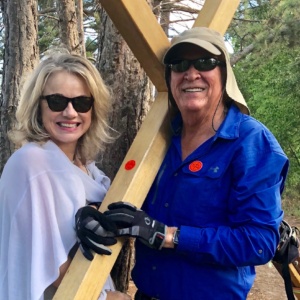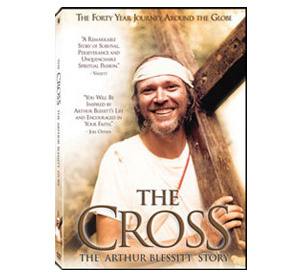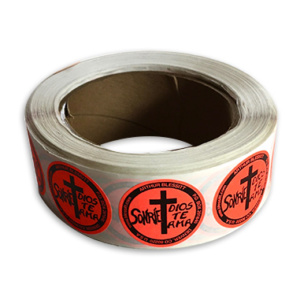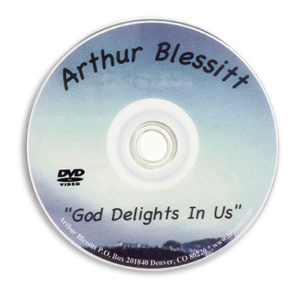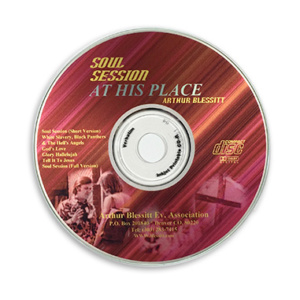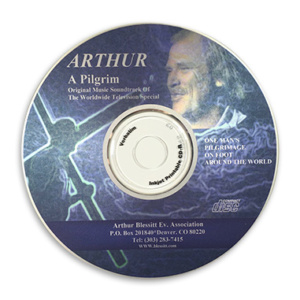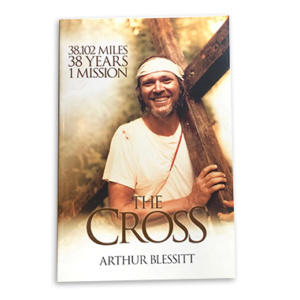Part 3: Witnessing Effectively
Materials You’ll Need
The Message Is More Important Than the Method
There is nothing that is essential for bringing someone to Christ except the conveying of the knowledge of Christ to them in whatever manner you can. That’s why we call witnessing “sharing Jesus Christ.” You don’t have to have a gospel tract in order to lead a person to Jesus. You don’t have to have a Jesus sticker to be a witness. You don’t even have to have the Bible in your hand. All you really need is Jesus in your heart. You must keep reminding yourself that it’s not the technique or the material that leads a person to Christ. It is the witness of another person who already knows Jesus.
There have been times when I’ve witnessed to people and it was so dark I couldn’t even read the Bible in my hand. Still, they’ve been saved. There have been times I’ve led people to Jesus Christ even though I didn’t have a Bible with me. There have been other times when I have just talked and shared Christ and never opened my Bible even though I held it in my hand. There is no fixed approach, no accepted system that will bring people to Jesus Christ. Many times Christians become locked into one means of communication and begin to think that that technique itself is the only right way to witness. But I believe two persons can have totally different approaches in sharing Christ and be equally effective. So you don’t have to witness like Arthur Blessitt in order to be a witness for Jesus Christ and to win people to Him. You don’t have to witness like Billy Graham or Bill Bright or like any other evangelist who is effective. You allow God to use you for His glory and let the witness of Christ be translated through your personality as you share Christ.
And yet, there are a number of materials that can make your witnessing much more effective. Some of these can go places that you can’t. They can stay after you leave. The ones we’ll be discussing here have been successfully used in many different situations. I think they will assist you in your witnessing.
Don’t Go to Battle Without Your Sword
The Bible is the single most important material we need when we are witnessing. As a matter of fact, I always carry the Bible with me. I have both a big Bible and a small pocket Bible, which is just a New Testament. Many times when I’m on the road walking, carrying the cross, I can’t take the big Bible because there’s no room for it. I just carry the small one covered with a plastic case. The plastic cover is a precaution against rain. I can get soaking wet and my Bible will still be usable. Some people say the print is so small that they can’t read it. Well, I holler loud enough so they can hear it even if they can’t read it.
When I’m witnessing on the streets or in homes, I usually carry the big Bible. I’m especially careful to do this in areas where I think there might be trouble. I don’t want people to misunderstand who I am or what I’m doing there. They all know what a Bible is, and it reassures them that you aren’t a threat to them.
Maybe some of you will never go into areas like this, but if you’re going after street people you’re bound to be in some difficult situations. You may be with a bunch of people who are involved with drugs. They’re always looking around for narcotics agents, so they’re suspicious of you. If you keep your Bible in your jacket and just mumble a few phrases like, “Have you ever thought of spiritual things?” you’re liable to end up with someone pounding you on the head. They’ll think you’re a narcotics agent. But if you carry your Bible right up front, you can avoid that kind of problem.
When I go into nightclubs and places like that, I hold the Bible so that they can see it. Then when I’m talking to the girls, they’re never under any illusion as to what my purpose is. If you keep your Bible in your hand while you’re witnessing, it’ll defeat the devil. It will put people under conviction, and they won’t be able to change the subject. It’s dangerous to try to witness in such places without identifying yourself right up front. Some people go into a bar or nightclub without carrying a Bible or having some Jesus stickers or other Christian symbol. They just sit at the bar and drink cokes, trying to get to know people, to become their friends. They’re just waiting for an opportunity for witness to open up. But it’s very easy to get caught up in the spirit of the place. If you go into the devil’s den and start visiting and socializing, you’re likely to wind up just like the people you are witnessing to. I’ve seen it happen over and over again.
To prevent this, always go in with your Bible in your hand. As soon as you sit down, start witnessing to the person nearest to you–right away! Then, there will be no question to you or to them about what you’re there for. You’re there to win souls. And as soon as you finish witnessing, leave
On the street, the Bible can have another very practical use. If you are involved in a confrontation with someone, and he’s coming after you, just put the Bible up in front of your face and say, “God bless you, praise the Lord.” They don’t know what you’re doing, but you’ve got the Bible up there sort of to protect you. They’ll have to hit the Word if they want to hit you. They won’t do it. You can just calmly back away. Sometimes I’ve been out on the streets and a lady has tried to get a hold of me. I say, “Hey, look, if you want to hold on to something, hold on to the Bible!” It bugs them to death. So, keep the Word in your hand.
Even when I’m traveling, I carry my Bible and cover my bags with Jesus stickers. Then, when I find my seat on the airplane, the person sitting next to me sees the Bible and the stickers and starts squirming. He knows I’m there for Jesus. In this way, I avoid all kinds of temptations, simply because people know I’m a Christian right from the beginning. I’ve found that the more conspicuous I am, the more effective I am.
Those Little Paper Evangelists
Gospel tracts can strengthen your personal witness. Sometimes people who will not listen to you will read them. It doesn’t matter who wrote them or how fancy they are, as long as they clearly point out the way of salvation.
I recommend using tracts that are inexpensive. That way you can be a good steward of your money, and you will have more to spend on buying Bibles, which are the best gospel tracts. Commercial tracts cost five or ten cents apiece, and at that rate you can easily spend a few dollars a day. But if you use an inexpensive tract, you can give out far more for less money.
The best solution to this problem is to have your own tracts printed. Design one yourself and have a local printer typeset and produce it. The greater the volume you print, the lower the price. So, you’re better off saving your money and buying 10,000 or 20,000 rather than just having a few hundred printed.
What should be included in an ideal tract? First and most essential, there must be a clear outline of how a person can receive Christ. This is very important when you give a tract to someone who won’t listen to you talk. When he goes to his house or motel and reads it, he will know how to be saved. A gospel tract should present the way of salvation so clearly that a person can understand step one, step two, step three, step four, how to be saved.
Secondly, there should be a prayer that a person can use in accepting Christ. Most people don’t have any idea how to pray. They don’t know that prayer is just a simple conversation with God. The prayer in your gospel tract will put words in their mouth so that they can pray for salvation.
I was seven years old when I accepted Christ. An evangelist talked to me in the church parking lot and led me to Jesus. I had wanted to receive Him, but I didn’t know what to say to God in prayer. The evangelist gave me the words and I prayed them. You’ll probably never know how many people use the simple prayer in your tract to receive Christ.
Thirdly, every gospel tract should have some simple statement on follow-up–what a person should do now that he has accepted Christ. You’ve got to help a new convert get started. He may not have any local fellowship to help him.
Finally, you should always include a return address or telephone number. It may be your church or your outreach center or your own home. But, it’s important that an interested person know how to get more help if he needs it.
The Big Question
The tract we have developed and have used by the thousands is entitled “The Big Question.” The front attracts a person’s attention with a large question mark. He wonders what the big question is, so he opens the tract.
Here is the question that confronts him:
If you had died the minute you started to read this, do you have the
assurance that you would be in heaven?
Of course, if he is not a Christian, he has no assurance about eternity. So, he wants to know how he can have some assurance. Without beating around the bush, the tract immediately tells him. The answer begins with the words, “The Bible says,” so that the person will know he is not just reading the opinions of men. Four Bible verses tell him the steps to salvation: (1) All have sinned (Romans 3:23); (2) The wages of sin is death (Romans 6:23); (3) God showed that He loves us by sending Christ to die for our sins (Romans 5:8); (4) Any one who calls upon Him will be saved from his sin (Romans 10:13).
Then the tract invites the person to simply trust Christ. And, a prayer of acceptance is given:
Dear Jesus, forgive me all my sins and save my soul. I repent of all
my sins and ask you to come into my heart and be the Lord of my
life. Take control of my life, for I give myself to Thee. Thank you
for hearing my prayer and saving my soul. In Jesus’ name I pray.
Amen.
If he has accepted Christ, he is asked to fill in his name and address and mail it in to the address on the back.
Finally, there is a brief follow-up guide. It encourages the new convert to: (1) Pray daily; (2) Read the Bible daily; (3) Witness for Christ daily; (4) Attend a church where the Bible is preached and Christ is honored; (5) Keep Christ’s commandments.
The New Life
Because there is quite often no local fellowship for a new convert to relate to, we have also developed a more detailed follow-up tract, entitled “The New Life.” When we lead a person to Christ on the street, we want him to have as much help as possible getting started in the Christian life.
This follow-up tract has three sections. The first reviews what has happened when he accepted Christ and helps him, through selected Scripture verses, (for scripture references, see the end of the book) to become assured of his salvation. The second section encourages him to be filled with the Holy Spirit as he lives his new life (Ephesians 5:18). The third is a more detailed explanation of the follow-up steps listed in the other tract.
On the back of the tract is my name and address and a personal greeting:
“I challenge you to let Jesus fill your life and to seek to walk in His will.
The coming of the Lord draweth near. May we bear effective witness of
Him until that moment when we shall stand in His presence in Heaven.
It is a joy to have you as a new brother or sister in Christ Jesus. May the
grace of the Lord Jesus Christ and the power of the Holy Spirit fill you
and strengthen you in Jesus’ Name.
Arthur Blessitt.
Luke 18:1”
I don’t believe this tract takes the place of good personal follow-up, but it will help a person who would otherwise be floundering all by himself. A convert needs to know right away that Jesus is with him, that God’s Spirit is in him, so that he doesn’t feel all alone. He needs to know that his sins are forgiven. He needs to know that God has saved him and that he’s received eternal life. He needs to know that he’s a child of God, that he’s in the family of God. He needs to know how to be filled with the Spirit and to walk in the Spirit. He needs to know what to do to develop that kind of a life.
If possible, I also like to give a new convert a Bible–at least a New Testament. You’re encouraging him to read the Bible, but he may not have one. This is difficult when you’re working out on the street, but you may be able to keep them in your car nearby. When you give him a Bible, you should share a brief little explanation of what the Bible is and why it is so important. Otherwise, he may open it up to some genealogies and become discouraged. Then, he’ll flip over to Revelation and see monsters that scare and confuse him. You need to guide him where to read first.
What in the World Are “Jesus Stickers?”
I guess I’m the world’s number one user of Jesus stickers. They’re little pieces of paper with glue on the back that have a simple attention-getting message: JESUS LOVES YOU; TURN ON TO JESUS; SMILE — GOD LOVES YOU.
I began the first Jesus sticker movement. The Lord burdened my heart back in the mid 60’s to start printing something for Christians to wear, because everybody else was wearing badges of various kinds, with dirty slogans, profane words and things like that. It was during the hippie era. I thought up an inexpensive way to advertise Jesus. I was in the supermarket one day, and I saw little price tags stuck on all the cans, and I thought, “Those would really work with a gospel slogan on them. I wonder how much they cost.” I couldn’t afford any kind of pin at that time. So we experimented and printed some Jesus stickers. I’ve changed a few of the symbols along the way, but I’ve found that these stickers are one of the most effective means of making contact with people for the gospel.
One night the police on Hollywood Boulevard said to me, “Listen, what in the world is happening? Every street person is wearing Jesus stickers. Do you just give them to the bad sinners or to everybody?” It’s really strange, but the worst sinners will take the stickers more quickly than anybody. It is easier to give them out to drunks than it is to church members walking the sidewalk. Christians are a little leery. They say, “Now what’s written on that?” The drunks say, “Put them all over me.” They’ll stick them on the seat of their pants–all over. But, I don’t mind. The slogans can speak for themselves no matter who’s wearing them.
Of course, just because a guy wears a sticker on the seat of his pants, that doesn’t mean he’s saved.
I meet people all the time who have stickers on their refrigerators or on their bed or on their dresser mirror or on their car dash. Some people put them everywhere, and yet they haven’t been saved even though those stickers have been there for years. It takes more than a sticker to lead a person to Christ. The sticker just opens the door.
That’s why I have my own stickers printed with my name and address on each one. Many people have written me letters for more information. When I was in Australia, there was a whole group of churches that wanted Jesus stickers. I gave them a few, but I encouraged them to print their own with their address on them. People don’t have to write to America. We did the same thing in England. We gave away over a million stickers there, but I refused to let them put my address on them. They did their own. Otherwise, I would have been inundated. As it is, we get mail from all around England, all over Europe, all over the world as a result of Jesus stickers.
The main reason for giving out stickers when you’re witnessing is to get a person to stop so you can talk to him. If you’re on a busy street, with people rushing by, you need to hand a person something interesting to get him to slow down for a minute. If you don’t have a sticker or tract, just say, “Will you stop and let me talk with you for a minute?” He won’t know what you’re up to. Maybe you’re trying to pick him up or make a drug contact.
But, the sticker overcomes that problem. The person can see right away that you’re not doing anything threatening. You may say, “I’d like to give you a sticker.” They’ll look at it–“What is this, anyway?” And then you start to witness, “It says, JESUS LOVES YOU. Do you know Him in your heart?”
And the stickers also multiply your witness. They make people on the street notice that there are a group of Christians down there witnessing.
People come walking down the street with stickers on. One, two, three, four–one person after another has a red badge on. “What’s going on here? Where’d you get that?” “Oh, a guy down the street stuck it on me.” And it won’t be three hours before the whole town knows you’re there. People will be wearing stickers all around town. And others will ask, “Where’d you get that?” “Well, there’s a guy down there at the corner telling people about Jesus.” The whole town will be aware that you’re there witnessing without your ever leaving that corner. If you do it on a regular basis, say, every Saturday, they’ll expect you to be there each week. As soon as they see the stickers, they’ll say, “Uh, oh, I know they’re still down there. Here comes another sticker.” You’ll get people thinking about Jesus who had never thought about Him before.
Does Music Help?
I’m discussing music among materials for witnessing because it can be used as an aid for spreading the good news about Jesus, just as tracts and stickers can. However, it can be as much of a liability as an asset in street ministry. If you’re going to have a musical program and witness afterwards, that’s great. But a guy who’s walking the street with a guitar strung over his shoulder has a hard time sticking to witnessing. Before long he’s back to strumming the guitar again, singing instead of witnessing.
But, at the beach a guitar can be a big help. A few Christians can sit down and do a little singing, and a group will gather around. Then one of the Christians can tell them how to know Jesus Christ, and a lot of one-on-one witnessing can grow from this spontaneous meeting.
Singing can be effective on the street and in clubs and bars, but I like to do it without a guitar. If you have a guitar, the people expect you to be good. We’ve had about ten people all singing off key, and yet we’ve sung in places where no trained choir could get to sing. We just start singing, and some drunks will say, “Do you know ‘The Old Rugged Cross?'” So we sing it. Sometimes a crowd gathers and I have a chance to preach.
The most effective use of music in witnessing is spontaneous and from your heart. Just enjoy the Lord, and if you feel like singing, sing. This kind of music is not a technique, but a natural expression of your joy in Christ.


